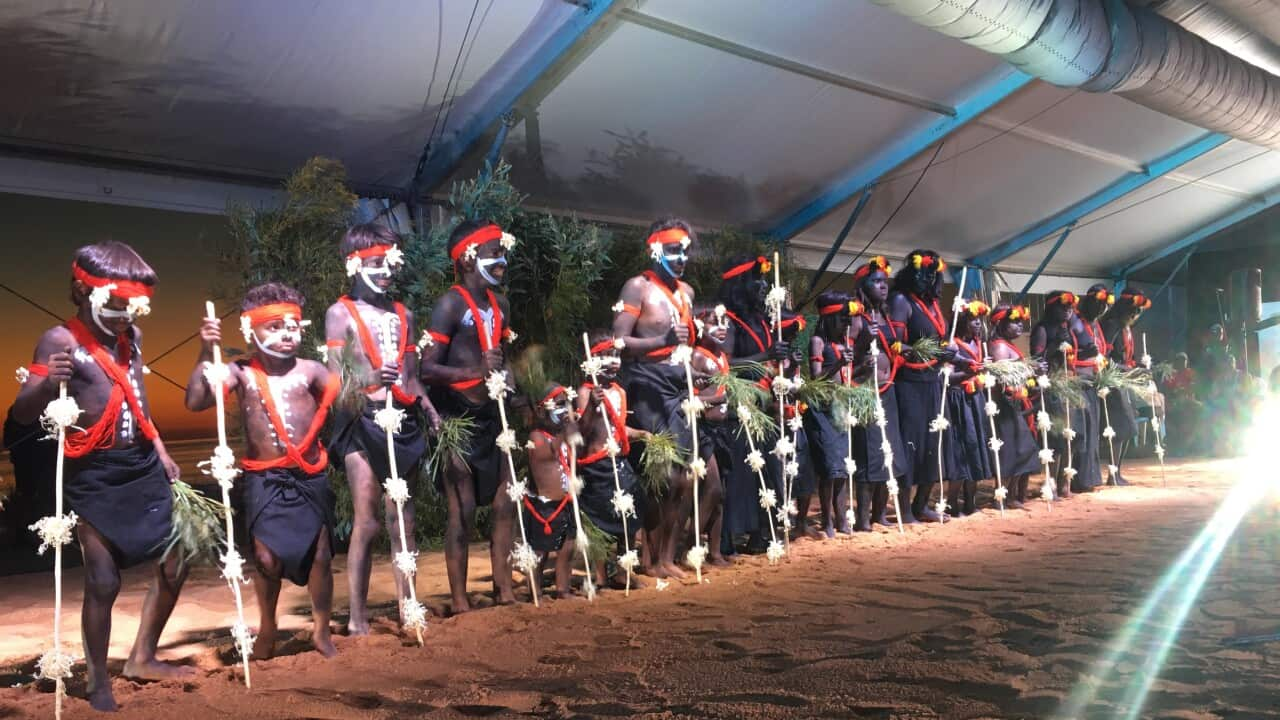The native title settlement with Western Australia has divided the Noongar community. When some claimants challenged it in court and won, the federal government responded by changing the Native Title Act.
The for $1.3 billion was reached in 2015. It covers an area of 320,000 hectares and is made up of six Indigenous Land Use agreements.
It is the largest - and also one of the most complex - native title claims. It starts around Jurian Bay, just outside the mid-west, and goes all the way down to Raventhorpe in the Great Southern, as well as out east almost near Goldfield boundary.
West Australian Aboriginal Affairs Minister Ben Wyatt labelled the agreement a “victory” for Noongar people.
“In WA, the Noongar people really bore the brunt of colonisation," Minister Wyatt told The Point.
“I think it sets the Noongar people up for a very good future… [the deal] is one of the more significant if not the most significant native title settlements since the Act went through the federal parliament,” he said.
The South West Aboriginal Land and Sea Council (SWALSC) started negotiating with the state government in 2009, after Western Australia appealed a court judgement which recognised Noongar native title over the Perth area.
“The Indigenous Land Use Agreements are a package of benefits and they range from land to economic based, community development, joint and cooperative management of parks etc," Wayne Nannup, CEO of SWALSC, told The Point.
He said there's no opportunity for native title to be recognised in large areas of the region.
"If you look at the South West it’s predominantly been extinguished.
"And if we’re talking about equity for our mob, and if we were successful at litigation and we got native title determination and that’s the areas where we’d have access to."
But the native title settlement area covers six Noongar groups - Yued, Whadjuk, Ballardong, Gnaala Karla Booja, Wagyl Kaip (Southern Noongar) and South West Boojarah - and not everyone is a member of the Council or in support of its approach.
'We did not want to surrender our right'
Mervyn Eades is a proud Noongar man who has been fighting against the settlement since the beginning. He told The Point he considers the deal to be “blood money”.
“To relinquish and surrender our rights, our sovereign rights for a little bit of money, it’s not acceptable," he said.
“It’s all stolen land."
Last year Mr Eades was a part of a claim group who challenged the lodgement of the agreement with the Native Title Registrar, as a number of applicants named had not signed.
Mr Eades alongside Mingli Wanjurri McGlade, Naomi Smith, and Margaret Culbong, who each represent a land use group, did not agree with the deal.
In February last year, a federal court agreed with the four claimants and found that four of the six land use agreements negotiated between SWALSC and the state government cannot be legally registered.
Two weeks later, the Commonwealth government introduced the Native Title Amendment (Indigenous Land Use Agreements) Bill. By June the Native Title Act was amended. The changes now mean Indigenous Land Use Agreements can become valid with a majority of signatures from representatives, rather than needing everyone to agree.
Mr Eades was appalled by the federal government's actions.
“We went through their law process, their process of native title and the rights to go to the federal court and we won," he said.
"We won on equal grounds, on their terms and definition of law but then for federal parliament to then override our decision, it’s corruption.
“They’re not only undermining our rights to native title and our rights to land. They’ve undermined their own law system.”
The amendment to the Native Title Act is understood to have affected up to 123 other claims, which were in the middle of being processed. One of them was the Adani case in Queensland. For the Noongar deal, it has delayed anyone from accessing the settlement money.
“People might want to say that we interfered, interfered with them getting money and whatever they wanted out of it," Mr Eades said.
"But our fight is to remain as Traditional Owners always ... and to have a seat at any negotiation about country. We did not want to surrender our right."
Mr Nannup told The Point he has had conversations with those who oppose the settlement but is adamant Noongar Elders want this deal.
“Our Elders, always reflecting on their decision around native title, they always believed that we need to get something better for native title for South West and for Noongar people," he said.
He believes opposition to the settlement was inevitable.
“The reality of native title is it’s becoming very conflicting within our communities and even within families. So to expect that we’re not gonna have people who would oppose the settlement, that’s just not true - it's going to happen."
SWALSC re-lodged new applications to the Native Title Registrar in August last year. The decision on the new application is expected to be handed down by the end of the year.
Watch The Point on Thursdays, 8.30pm on NITV (Ch. 34) or catch up On Demand.













